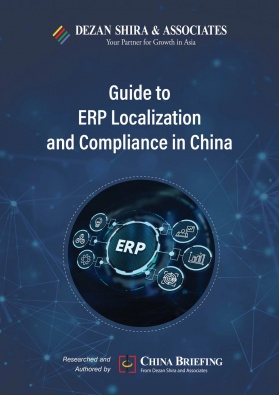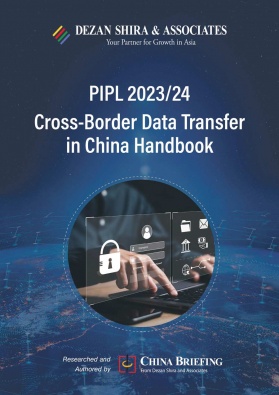China Monthly Tax Brief: June 2024
In this China Monthly Tax Brief for June 2024, we highlight significant developments in taxation for both businesses.
- The State Council released the Regulations on Fair Competition Review, prohibiting unauthorized tax incentives for specific operators.
- The Ministry of Commerce announced an increase in the duty-free limit for luggage carried by residents from the Hong Kong and Macao regions upon entry.
- The Customs Tariff Commission released an announcement on June 27, 2024, regarding the application of agreed tax rates for certain goods originating in Serbia starting from July 1, 2024.
- Five departments of Shanghai have jointly issued a notice regarding temporary import repair tax policies in the China (Shanghai) Free Trade Zone, effective from June 27, 2024.
- The Shenzhen Municipal Government recently issued measures to further attract and utilize foreign investment, including several finance and tax policies, among others.
The State Council announces Regulations on Fair Competition Review, prohibiting unauthorized tax incentives for specific operators
On June 6, 2024, the State Council released the final version of the Fair Competition Review Regulations (the “Regulations), in an effort to “unify the domestic environment” and level the playing field between state-owned and private companies.
The regulations, which are based on China’s Anti-Monopoly Law, will require administrative authorities to conduct fair competition reviews when drafting laws, administrative regulations, local regulations, rules, normative documents, and policy measures (hereinafter collectively referred to as policy measures), to ensure that they do not unfairly favor certain market entities.
The new regulations will come into effect on August 1, 2024.
Among others, the Regulations specially mentioned that without a legal or administrative regulatory basis or State Council approval, local policies also cannot include the following content that affects production and business costs:
- Granting tax incentives to specific operators;
- Granting selective or differential fiscal rewards or subsidies to specific operators;
- Granting specific operators preferential treatment in obtaining resources, administrative fees, government funds, social insurance fees, and so on; and
- Other content that could affect production and business costs.
Local governments often promise various incentives during investment attraction processes. However, the restrictions on local governments from offering preferential treatments, such as tax incentives or subsidies, without proper legal or administrative approval can significantly impact foreign investors. Foreign investors must be vigilant during negotiations with local governments, understanding that any promises of special tax breaks, subsidies, or other financial incentives may not hold up if they violate fair competition regulations. Investors are advised to conduct necessary due diligence to protect their legitimate rights and interests.
For more information about the Fair Competition Review Regulations, please read here.
Shanghai announced new import and export tax incentives in the Free Trade Zone
Five departments of Shanghai have jointly issued a notice titled Regarding Temporary Import Repair Tax Policies in the China (Shanghai) Free Trade Zone, effective from June 27, 2024. or
According to the Notice:
- In the Shanghai Free Trade Zone (including the Lingang New Area), within the Customs Special Supervision Zone (referred to as the pilot area), certain tax incentives will apply to goods temporarily imported for repair by businesses starting from June 27, 2024.
- For goods repaired within the pilot area and subsequently re-exported, no import duties, value-added tax (VAT), or consumption tax will be levied.
- If the repaired goods are not re-exported but instead sold domestically, businesses must follow import procedures. Import duties, VAT, and consumption tax will be assessed based on the actual declared status of the repaired goods.
This policy specifically applies to the Yangshan Comprehensive Bonded Zone, Shanghai Pudong Airport Comprehensive Bonded Zone, Shanghai Waigaoqiao Port Comprehensive Bonded Zone, and other Customs Special Supervision Zones within the Shanghai Free Trade Zone, as approved by the State Council.
China increases duty-free luggage limit for Hong Kong and Macao residents
The Chinese mainland has announced an increase in the duty-free limit for luggage carried by residents from the Hong Kong and Macao regions upon entry. This move aims to enhance economic ties and boost consumer spending.
The decision was reached through consultations under the Closer Economic Partnership Arrangement (CEPA) mechanism between the Chinese mainland and Hong Kong and Macao. The CEPA provisions now include the duty-free limit adjustments.
On June 27, 2024, the Ministry of Finance, the General Administration of Customs, and the State Taxation Administration issued an Announcement on Raising the Duty-free Shopping Quota for Mainland Visitors to Hong Kong and Macao Special Administrative Regions, clarifying relevant matters.
According to the Announcement, residents entering the Chinese mainland from Hong Kong and Macao, aged 18 or older, can carry personal items obtained abroad for reasonable use. If the total value of these items is no more than RMB 12,000 yuan (approximately US$ 1,846), such overseas purchases can enjoy a duty-free policy. At ports with duty-free shops, travelers can also purchase additional duty-free goods, as long as the combined value does not exceed RMB 15,000 (approximately US$ 2,308).
Starting from July 1, 2024, the new limits apply at six ports: Luohu, Futian, Shenzhen Bay, Guangzhou-Shenzhen-Hong Kong High-Speed Rail West Kowloon Station, Gongbei, and the Zhuhai section of the Hong Kong-Zhuhai-Macao Bridge. From August 1, 2024, these measures will extend to all entry ports (except for the Hengqin “first-line” port).
This adjustment represents a positive step toward closer economic cooperation between the regions and encourages cross-border travel and commerce.
China to implement tariff concessions for Serbia under the Free Trade Agreement
The Customs Tariff Commission of the State Council released an announcement on June 27, 2024, regarding the application of agreed tax rates for certain goods originating in Serbia. As a result of negotiations between China and Serbia, the Free Trade Agreement (FTA) between the two countries will take effect on July 1, 2024. According to the announcement, China will apply the agreed tax rates to eligible goods from Serbia starting from the effective date.
The China-Serbia FTA was signed in October 2023 when President Xi and Serbian President Aleksandar Vučić met in Beijing for the third Belt and Road Forum for International Cooperation. This agreement aims to boost trade and collaboration in sectors such as automotive, technology, agriculture, and commodities.
As the first FTA between China and a Central and Eastern European nation, it makes Serbia China’s 29th FTA partner. By eliminating tariffs on many goods, the agreement is expected to significantly impact European and Eurasian trade dynamics, highlighting their commitment to mutually beneficial relations. The FTA negotiations, completed in just five months, reflect the high level of political trust between the two countries.
For more information about China and Serbia bilateral information, please read here.
Shenzhen further optimizes the foreign investment environment and promotes high-level openness
The Shenzhen Municipal Government recently issued the Implementation Measures for Further Attracting and Utilizing Foreign Investment, to promote high-level openness in Shenzhen. These measures came into effect on June 1, 2024, and will be valid for five years.
In the field of finance and taxation, Shenzhen has committed to providing increased support for foreign investment projects:
- Support for foreign investment in manufacturing projects: Manufacturing enterprises that achieve a certain level of newly added foreign investment between 2023 and 2027 will receive rewards. For manufacturing enterprises with annual newly added foreign investment of US$50 million or more, high-tech manufacturing will receive a 3 percent reward based on the newly added investment amount, while other manufacturing sectors will receive a 2 percent reward. The maximum annual reward is RMB 50 million (US$7.8 million), with a cumulative maximum of RMB 150 million (US$23.4 million).
- Support for large foreign investment projects: Foreign invested enterprises (excluding financial and real estate industries) that achieve a certain level of newly added foreign investment between 2023 and 2027 will receive rewards. For foreign invested enterprises with annual newly added foreign investment of US$50 million or more, high-tech services will receive a 2 percent reward based on the newly added investment amount, while other industries will receive a 1 percent reward. The maximum annual reward is RMB 20 million (US$3.1 million), with a cumulative maximum of RMB 80 million (US$12.5 million).
- Development of headquarters economy: Guangdong Province and Shenzhen City will provide a one-time reward to recognized foreign multinational corporation headquarters with annual newly added foreign investment of US$10 million or more. The reward will be RMB 5 million (US$780,000).
- Implementing tax preferential policies for foreign invested enterprises: Implement a policy of not withholding income tax on profits distributed by overseas investors for direct investment. Further optimize the declaration and review process for the preferential individual income tax policies for high-end and urgently needed talents from overseas (including Hong Kong, Macao, and Taiwan) in the Guangdong-Hong Kong-Macao Greater Bay Area. Implement tax policies supporting technology innovation imports and VAT refunds for domestically purchased equipment for foreign-funded research and development centers in accordance with relevant national regulations.
About Us
China Briefing is one of five regional Asia Briefing publications, supported by Dezan Shira & Associates. For a complimentary subscription to China Briefing’s content products, please click here.
Dezan Shira & Associates assists foreign investors into China and has done so since 1992 through offices in Beijing, Tianjin, Dalian, Qingdao, Shanghai, Hangzhou, Ningbo, Suzhou, Guangzhou, Dongguan, Haikou, Zhongshan, Shenzhen, and Hong Kong. We also have offices in Vietnam, Indonesia, Singapore, United States, Germany, Italy, India, and Dubai (UAE) and partner firms assisting foreign investors in The Philippines, Malaysia, Thailand, Bangladesh, and Australia. For assistance in China, please contact the firm at china@dezshira.com or visit our website at www.dezshira.com.
- Previous Article China’s Industry Clusters – A Comprehensive Overview
- Next Article Complying with New Registered Capital Rules under China’s Revised Company Law







